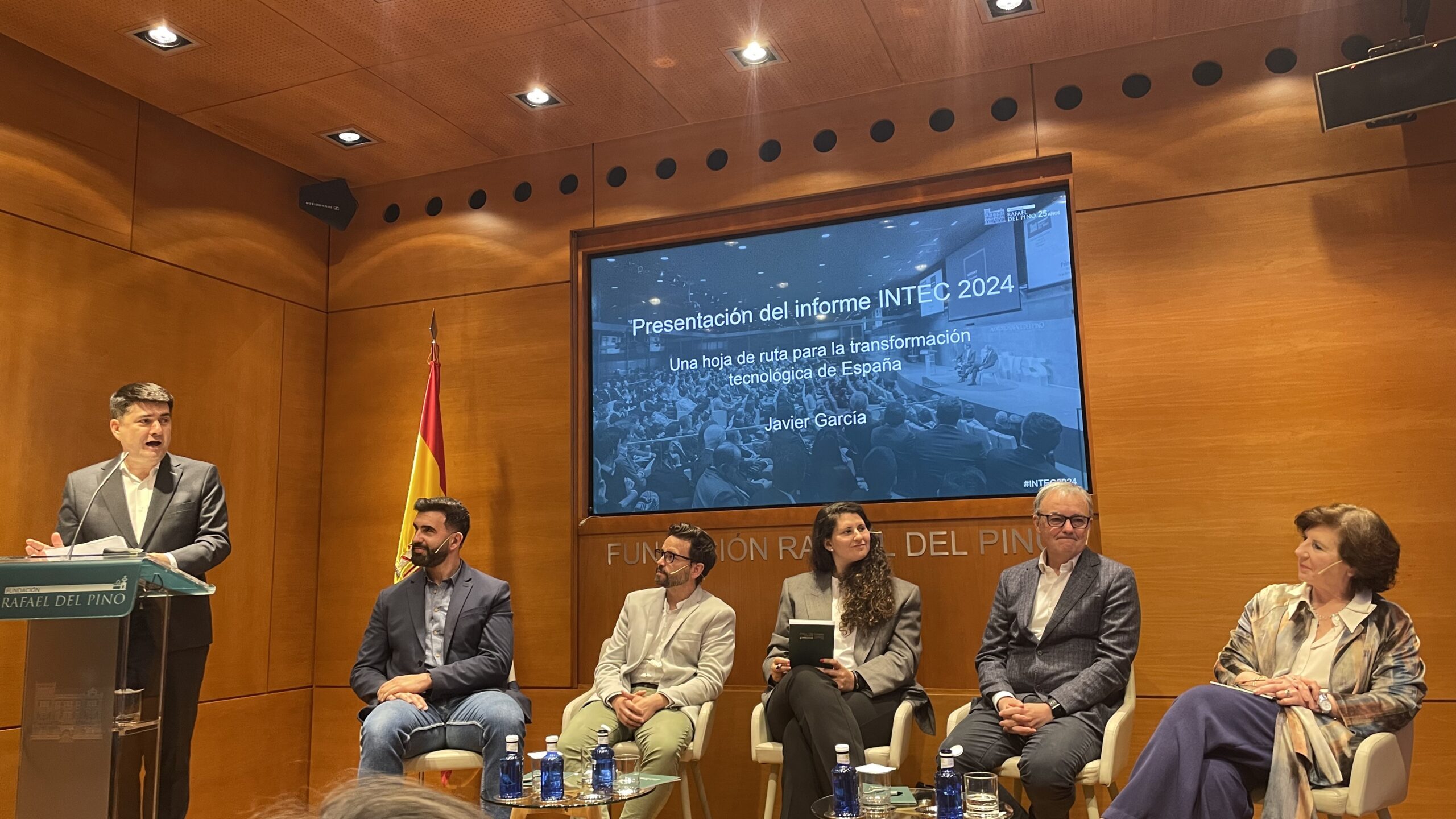
The director of the Rafael del Pino Foundation's Chair in Science and Society, Javier García Martínez, stated in his speech at the presentation of the INTEC 2024 report that "in a world that is closing, science remains an open door, a call for sanity and collaboration".
The event was held at the headquarters of the Rafael del Pino Foundation and was attended by the president of HP Southern Europe, Helena Herrero, as well as a panel moderated by Natalia Rodríguez, CEO of Saturno Labs, Daniel Pérez Grande, CEO of IENAI Space, Carlos Matilla, CEO of FuVex, and José Capmany, founder of iPronics and researcher at the Polytechnic University of Valencia.
In his welcoming remarks, the director general of the Rafael del Pino Foundation, Vicente Montes, pointed out that "despite the turbulence, we are living in times that we want to see full of opportunities", and urged us to "weave a solid network between science, technology and society".
For Javier García Martínez, the INTEC 2024 report "is not just a publication", he said, "it is a compass for navigating a complex, hyper-connected, polarised, fragmented and contradictory time. It is, without a doubt, a time for the brave: for those who are not resigned. For those who are committed to knowledge, science and innovation as pillars of the future".
According to García Martínez, "Time for the Brave is, above all, a call to action. To leave behind the 'let others innovate'. To understand that innovation is not a luxury: it is a necessity. Because what is at stake is not only economic growth, but also social cohesion and the quality of our democracies.
To achieve this, he added, "we need to act with the spotlight on. This implies vision, purpose and strategy. It means strengthening our technological capabilities, betting on our frontier companies and no longer resigning ourselves to the fact that low productivity continues to be the Achilles heel of our economic model".
"The book also insists on an essential idea: it is not enough to have good ideas. You have to generate social demand for change," he said. "Because in a free society, the success of any transformation depends on people feeling that this transformation is theirs. That it makes sense. That it affects them. That it belongs to them".
García Martínez reviewed some of the factors that make our times different. "It is no longer just public research centres that innovate. In companies such as Nvidia, Novartis or OpenAI, technology is invented, scaled and marketed simultaneously," he said. Likewise, "artificial intelligence allows us to make original scientific discoveries that until a few years ago seemed impossible".
He concluded by stating that "innovation is not the privilege of a few, but a collective responsibility. True leadership is measured not only by the ability to anticipate change, but also by the courage to drive it forward. In times of retreat, let us look forward. In times of fear, let us embrace knowledge.
Helena Herrero highlighted the "multidisciplinary" nature of the INTEC 2024 report, which "invites reflection and debate, to understand how ideas and technological trends are applied and respond to challenges". Referring to the title of the report (The time of the brave, from ideas to innovation), she said that "brave is what we need right now", to predict what is going to happen in a time that she described as "confusing, dystopian, that we cannot explain", we are "in an exponential world in which everything happens very fast and it is difficult to get disruptive changes right, but also in technological advances".
In his opinion, "there are structural challenges that we saw coming", such as those related to climate change, polarisation, inequality, urbanisation or the impact of technology on privacy and security. "Many of the current geopolitical challenges are due to these structural challenges, it is no longer one technology, there are many at once that create disruption and on top of them has come generative AI, which brings changes in all sectors and at all levels".
Helena Herrero encouraged "creating environments of certainty in times of uncertainty", applying "long lights" and conceiving technology "as an element of transformation, not only to increase efficiency". In this sense, "we need to invest in talent, in people, innovation is not possible without them and the human aspect is what gives purpose to innovation, it is essential that technologies serve to improve everyone's lives".


